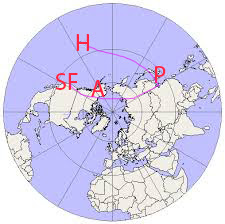The list below is from the Veterans Administration. (you can adjust the size in the file below)
Americas Wars by Steve on Scribd
When you get to the bottom of page one, there's a link to The Global War On Terrorism. That link gets you to a page that gives you urls that get here.
It turns out The Global War on Terrorism is made up of a series of operations.
 |
| From Defense Casualty Analysis System - Click to enlarge and focus |
From Wikipedia:
"Operation Enduring Freedom (OEF) is the official name used by the U.S. government for the Global War on Terrorism between 2001 and 2014. On October 7, 2001, in response to the September 11 attacks, President George W. Bush announced that airstrikes targeting Al Qaeda and the Taliban had begun in Afghanistan.[8] Operation Enduring Freedom primarily refers to the War in Afghanistan,[9][10] but it is also affiliated with counterterrorism operations in other countries, such as OEF-Philippines and OEF-Trans Sahara.[11][12]From Military.com:
After 13 years, on December 28, 2014, President Barack Obama announced the end of Operation Enduring Freedom in Afghanistan.[13] Continued operations in Afghanistan by the United States' military forces, both non-combat and combat, now occur under the name Operation Freedom's Sentinel.[14]"
Hagel said, "In Operation Freedom's Sentinel, the United States will pursue two missions with the support of the Afghan government and the Afghan people."On the chart, we also have Operation Iraqi Freedom which happened while Enduring Freedom was still going on. From the Congressional Research Service:
"We will work with our allies and partners as part of NATO's Resolute Support Mission to continue training, advising, and assisting Afghan security forces," he added. "And we will continue our counterterrorism mission against the remnants of Al Qaeda to ensure that Afghanistan is never again used to stage attacks against our homeland."
"Operation Iraqi Freedom (OIF), the U.S.-led coalition military operation in Iraq, was launched on March 20, 2003, with the immediate stated goal of removing Saddam Hussein’s regime and destroying its ability to use weapons of mass destruction or to make them available to terrorists. Over time, the focus of OIF shifted from regime removal to the more open-ended mission of helping the Government of Iraq (GoI) improve security, establish a system of governance, and foster economic development."Also in there is Operation New Dawn. From an Army site:
"During Operation New Dawn, the remaining 50,000 U.S. servicemembers serving in Iraq will conduct stability operations, focusing on advising, assisting and training Iraqi Security Forces (ISF). Operation New Dawn also represents a shift from a predominantly military U.S. presence to one that is predominantly civilian, as the Departments of Defense and State work together with governmental and non-governmental agencies to help build Iraq's civil capacity."
And Finally there is Operation Inherent Resolve. From a military page:
On 17 October 2014, the Department of Defense formally established Combined Joint Task Force - Operation Inherent Resolve (CJTF-OIR) in order to formalize ongoing military actions against the rising threat posed by ISIS in Iraq and Syria. Fueled by sectarian conflicts and division, ISIS ascended from relative obscurity in 2013 to propagate an extremist socio-political ideology, and claimed to have created an Islamic caliphate. Its successful acquisition of conventional weapons, establishment of armed formations, rapid territorial growth and unconscionable atrocities shocked the world and destabilized the region. By June 2014, the security situation in Iraq had deteriorated with the Iraqi cities of Mosul and Tikrit falling in rapid succession to ISIS aggressors.
The numbers of military who took part, were killed or wounded, is documented differently. You can poke around that page and get numbers for each of the Operations. Be careful to note that in most of the tables, deaths are 'per 100,000" serving. So actual deaths have to be multiplied. If there are 1 million serving, you need to multiply by ten. And they use somewhat different categories.
The following document had some particularly shocking statistics. The percentage of African-American deaths is much higher than African-American's percentage in the US population (13%).
According to the chart, in the Persian Gulf war 17% of the men who were killed were African American and 20% of the women killed were African American.
In all the wars since 1980, 17% of the men killed were African American and 26% of the women killed were African American. And these numbers only go to July 25, 2009. We don't know about the next six years.
It seems to me the Pentagon should have been studying those numbers to determine why. Are black women significantly more likely to be in the military? If so, why does that seem to be a better option for them than living with their families in the US?
If not, why are they being killed more than others? Are white women more likely to be officers (who the other statistics say are killed much less than enlisted military), are they sacrificed, do the commit suicide more? Whatever the answers, we should have documented explanations.
After I wrote that I googled and found this 2013 NYTimes article on a PEW study of African-American women in the military. Yes, African American women make up a much higher percentage of women in the military than in the US population as a whole - about one-third. But they haven't studied why, though the military says they match their recruiting target well:
"[Beth J. Asch, a senior economist and defense manpower specialist at the Rand Corporation] suggested that the military tries to attract high school graduates who are looking for job training, good benefits and help with college tuition — and that a high percentage of black women fit that bill."Lots to think about on Veterans Day.
And here's another list that seems to be for Enduring Bullshit:






